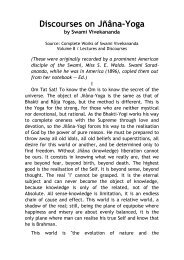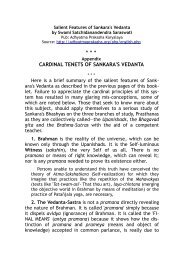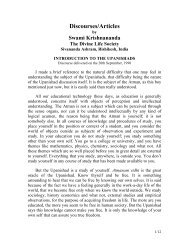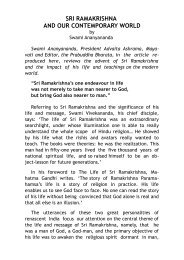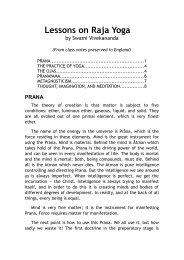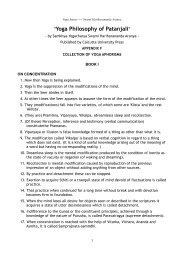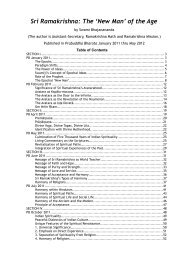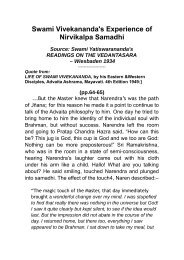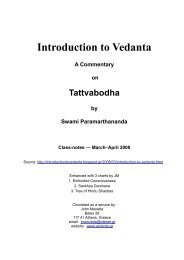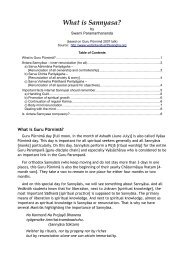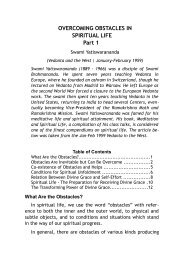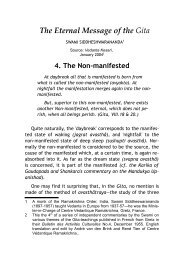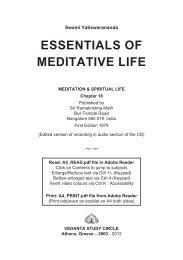Concentration & Meditation - Vedanta
Concentration & Meditation - Vedanta
Concentration & Meditation - Vedanta
You also want an ePaper? Increase the reach of your titles
YUMPU automatically turns print PDFs into web optimized ePapers that Google loves.
<strong>Concentration</strong> and <strong>Meditation</strong> 9mind. In meditation the object usually plays only a passive partand control of the mind is effected by the self. The mind can becontrolled, not by the mind, but by a faculty which is higher thanit. This higher faculty is the buddhi or dhi, which is both a facultyof intuition and will. It is an impulse originating in the buddhi thatcontrols the mental waves and directs the stream of consciousnesstowards the object during meditation. Unless this buddhi isto some extent developed and made active, meditation is difficult.Yet another difference, eighth in order, is that meditation is notjust looking at an object but is an attempt to enter into a living relationshipwith it. This is especially true in the path of bhaktiwhere the devotee looks upon meditation only as a means offorging an intimate, everlasting relationship of love with his ChosenIdeal. One of the chief reasons why many people do not succeedin meditation is that they forget this important point andregard it as a passive act like looking at a picture or a flower.A loving relationship can be established only when there is acertain degree of similarity of nature between the subject and theobject. <strong>Vedanta</strong> holds that every human being is potentially divine:that is, his true self is a part of the Supreme Self. Spirituallife is the discovery of this eternal relationship. To discover thisrelationship spiritual aspirants must first of all discover their trueself, the true divine centre within themselves, where alone theycan feel the touch of the Supreme Spirit. It is only when the mentalwaves are stilled that the light of the self reveals itself. That iswhy calmness of mind is so important.But meditation is not mere inner silence, it is the conversion ofthis silence into a means of uniting the individual self with the SupremeSelf. That is why meditation of some kind or the other isenjoined in all Hindu scriptures. The Bible also says: “Be still andknow that I am God.” (Psalms 46.10)Lastly, it should be remembered that ordinary concentrationand meditation lead to quite different results. Proficiency in meditationmakes it easy to do any work with concentration, but thereverse is not always true. Though doing secular work with concentrationgives a good training to the mind — and is thereforebetter than idling about or working sloppily — it does not ipsofacto enable the aspirant to do deep meditation. Ordinary activities,if not accompanied by discrimination, detachment, devotion



